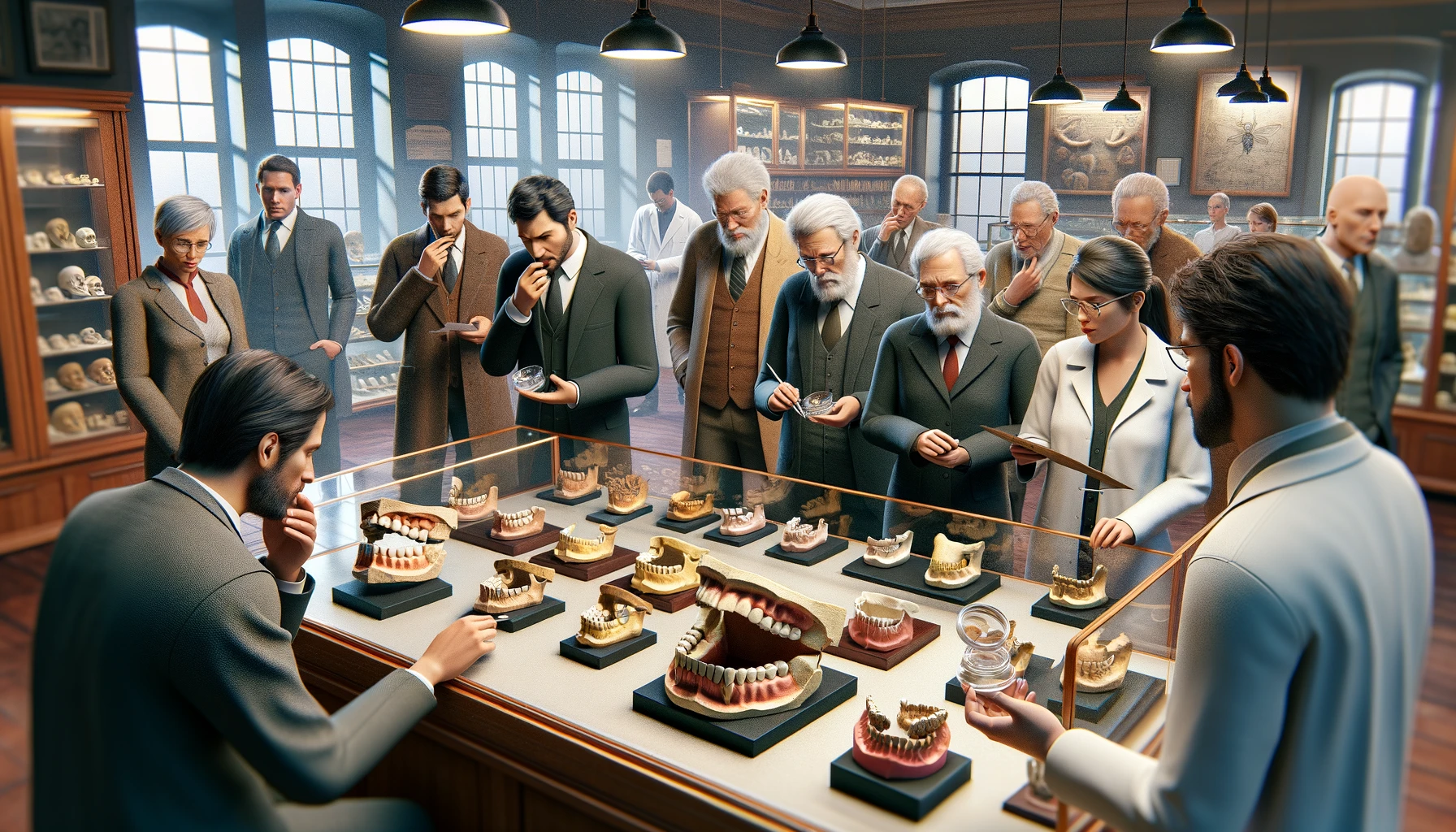They say never trust a person with false teeth, but that’s just what the conspiracy theorists want you to believe. What began as a few whispers about overly expensive cleanings and questionable materials has snowballed into a full-blown denture rebellion. In online forums and hushed conversations, the theories spread like plaque on an unbrushed tooth.
Some claim dentures are the new mind control – those gleaming smiles hide government-funded microchips or implants courtesy of the ever-suspicious Illuminati (or worse, those meddling lizard people). Others believe they’re packed with listening devices, broadcasting your every mumble to a hidden network of eavesdroppers. But perhaps most insidious of all is the belief that the entire dental industry is a scam, that dentists themselves sabotage our pearly whites to line their pockets with a lifetime of denture payments, fueled by a dark alliance with the sugar manufacturers.
Social media is a hotbed for these wild claims. Grainy videos claiming to show “suspicious wiring” in an elderly aunt’s spare set go viral. Memes mocking the idea take on a life of their own, planting a seed of doubt in even the most rational minds. Late-night comedians try to poke fun at the absurdity, but their jokes carry a hint of unease. Dental professionals, bewildered by the whole situation, attempt to fight fire with facts. They publish infographics explaining denture materials (spoiler alert: it’s mostly plastic, with zero government-grade surveillance tech). They even offer free seminars on proper denture maintenance, hoping to soothe fears. It’s a desperate bid to restore sanity in a world gone mad, but their efforts seem to bounce off a wall of distrust.
The scenario continues to unfold as anecdotal stories of denture woes become the fuel for more outlandish theories. It’s often remarked that sunken cheeks and tightly pursed lips may not just be the result of aging but rather a deliberate result of this so-called “scam.” As more people join the chorus of dissent, the reputation of dentists hangs precariously in the balance. The dental community responds with more intense public relations campaigns, showcasing happy, denture-wearing seniors enjoying their golden years without a care, but these images are met with skepticism and sometimes outright ridicule.
As the groundswell of doubt grows, even policymakers begin to take notice. Proposals for tighter regulations on denture production and clearer labeling of materials are discussed in legal chambers. Consumer rights groups, initially hesitant, start to advocate for more transparency and accountability.
Will the Denture Rebellion fizzle out? Will there be mass protests where the toothless demand answers? Who knows, but one thing’s for sure: the next time someone flashes you a wide, denture-filled grin, a flicker of doubt might cross your mind. Is that just a friendly smile, or are they listening, plotting, and reporting your every word to their shadowy overlords? As this bizarre narrative continues to develop, it becomes a remarkable example of how modern myths can take root and flourish, even among an unsuspecting public.

